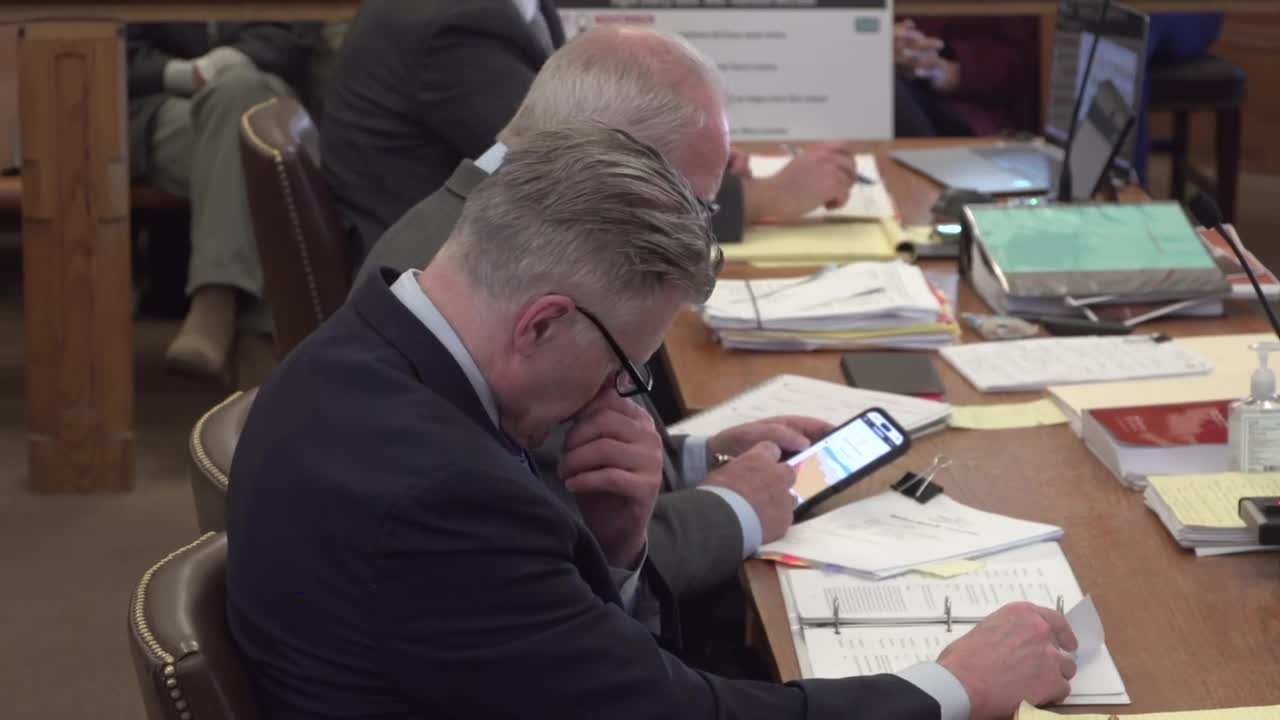Work
We Get It, You’re Rich
Out-of-touch bosses are bragging about their wealth to struggling employees in obscene new ways.

Sign up for the Slatest to get the most insightful analysis, criticism, and advice out there, delivered to your inbox daily.
Few people are as knee-deep in our work-related anxieties and sticky office politics as Alison Green, who has been fielding workplace questions for a decade now on her website Ask a Manager. In Direct Report, she spotlights themes from her inbox that help explain the modern workplace and how we could be navigating it better.
At a time when many Americans are struggling with rising costs of living and worries about their households’ financial stability, many corporate executives are making it clear that they have no idea what life is like for their employees.
At my work advice column Ask a Manager, I regularly hear accounts of out-of-touch executives who have alienated large portions of their workforce via clueless displays of wealth at the exact same time that they’re laying off employees, increasing health insurance costs, or otherwise squeezing their workers. To wit:
-
“My spouse’s large, local employer was failing, pretty spectacularly. Many, many people in the community had purchased stock (and were watching the stock prices tumble). During the week of another round of layoffs, the relatively new CEO had her brand-new luxury vehicle delivered to the main office (which was nearly all windows). It was unloaded right out front in the fire lane, while employees watched.”
-
“Years ago, our director started our department meeting by talking about his vacation, how nice his vacation home is, blah, blah, blah. On the same day, I was notified that my pay was cut 30 percent and others were laid off.”
-
“My husband’s boss, when announcing a raise freeze, tried to commiserate with the employees by saying things were bad for him too: He didn’t get to travel abroad that year and he had to sell one of his cars. Back then, my husband had never left the country, and we didn’t (still don’t, actually) have a car.”
-
“My husband’s boss shared photos of her family’s cruise to Antarctica at an all-staff meeting, not long after a major staff layoff (so more like an all-that-was-left staff meeting). When she saw the looks she was getting, she tried to backpedal and said it was a ‘once in a lifetime’ trip.”
Some executives seem utterly oblivious to the ways in which their lifestyles differ from their employees’, and that oversharing about their own wealth isn’t doing them any favors if they’re trying to relate to their workers:
-
“A few months ago, we had a reorg and got a new executive, ‘Alex.’ Alex is new to the company and has done a lot of work to try to get to know the business and the people involved. The attempts have seemed mostly practical and sincere. Recently, however, an all-day event was scheduled under his auspices. A survey was sent out ahead of time, and it included questions like ‘What don’t you know but would like to know about Alex (personally or professionally)?’
I got to the meeting, and there was a slideshow playing of Alex on various horses and wandering through a vineyard. The first 20 minutes were all the executives giving each other gifts on a podium and sharing with us their plans for the holidays. It turns out they all own horses. Interspersed throughout the day were trivia questions with prizes (from Alex’s winery) for knowing things like the names of his horses, his children, or the name of the wine he makes at his vineyard. One of the questions someone had put in the survey was about how he handles work–life balance. He responded by humblebragging and complaining about how early he has to wake up to tend to the horses before doing this job while also juggling his vineyard. How universal he imagines that struggle to be is hard to imagine.”
-
“The head of the org I work for has been complaining about his home renovations for months. I get it—he had to move out of his house and [checks notes] into the other property he owns. This has been happening while several employees are dealing with being illegally ousted from their rentals due to landlords not legally following the lead abatement process. But, yes, that kitchen renovation that you chose to do is also clearly traumatic too.”
-
“During his first all-staff meeting, our COO said he had taken the past two years off before this job and that he highly recommended we all do it.”
This obliviousness to inequality in resources was particularly visible during the COVID-19 pandemic, when differences in income and privilege surfaced in especially jarring ways:
-
“During COVID, my country was in extended lockdown. We had an all-hands meeting intended to be a check-in on our welfare, during which a senior staff member shared tips on managing working remotely. They said that they keep their work items like their headset in a little bag so that, whichever room in the house they were working from, they could take the bag and be sure they had everything they needed with them.
We had junior staff living in shared houses, working standing up over an ironing board because they didn’t have any private space other than their own tiny room, which was too small to fit even a table. Leaving work items in other rooms of our large homes was not something that was a cause for concern for most of us.”
-
“In 2020 I was working at a place with a very unpopular leader, who decided to pass the pandemic by renting a luxurious cabin in the mountains for her family. Every all-staff meeting, she would dial in with the giant stone fireplace in the background and talk about how wonderful it was to spend this precious time with her family and luxuriating in nature. You can imagine how well this went over with the rest of the staff, many of whom were separated from their family and friends, had sick loved ones, etc. Most of us did not have the resources to relocate to a luxury vacation rental!”
-
“At my previous employer, over a company-sponsored meal of cheap sandwiches, the VP gave a speech to thank essential workers. He told us we should not think of COVID as a bad thing but a blessing because without it we wouldn’t have come together as a company and made the record profits we did over three years.
All of us in the room were on a wage freeze the entire time because the company said that there wasn’t enough money and that to avoid layoffs, hard decisions had to be made. Many of us got by being exposed at work due to shitty protections.
You could have heard a pin drop. I’m still surprised people didn’t riot. They could not figure out why, a month later, they were approaching 50 percent turnaround in staff who’d been required to be on-site during the pandemic.”
-
“We got a very stern lecture about the importance of coming into the office and mandatory in-person attendance from an exec who was herself calling in remotely (to the mandatory, in-person meeting) because it was ‘too cold.’ ”
Some of this is just plain self-absorption—executives who let their power at work convince them that they must be extra interesting to those around them. (Spoiler: they generally are not.)
-
“The CEO of our division just held an all-hands meeting in which we had to play a trivia game about her. We had to vote on where she was born, how many coffees she drank a day, and which Netflix shows she had binged. Twenty minutes of that, with thousands of employees. It was one of the most clueless and expensive meetings I’ve ever been to, especially since there was nothing about our business strategy or results.”
-
“I used to work at a place where the CEO would come into an all-hands meeting with flashing lights and loud music playing (Rocky theme song, maybe? I forget), and all the employees were supposed to applaud and cheer.”
This behavior by executives has ramifications beyond merely being gauche. It betrays a fundamental divide between higher-level management and the people who work for them—it’s tough for employees to respect managers who look this out-of-touch and oblivious or to feel that they share a common agenda. It ends up creating an us-vs.-them mentality, which is detrimental to running a healthy business where you need people to feel as if they’re all on the same team and share a reasonably common frame of reference. It causes people to feel disconnected from their work and cynical about their employers—and rightly so.
Leaders who want the respect of the people working for them need to do significantly more self-reflection on how their employees see them and why—and work on more intuitively understanding why their employees don’t want to waste time watching vacation slideshows and guessing what their horses’ names are.
Get the best of news and politics
Sign up for Slate’s evening newsletter.
-
Economy
-
Labor
-
Workplace
-
Direct Report











